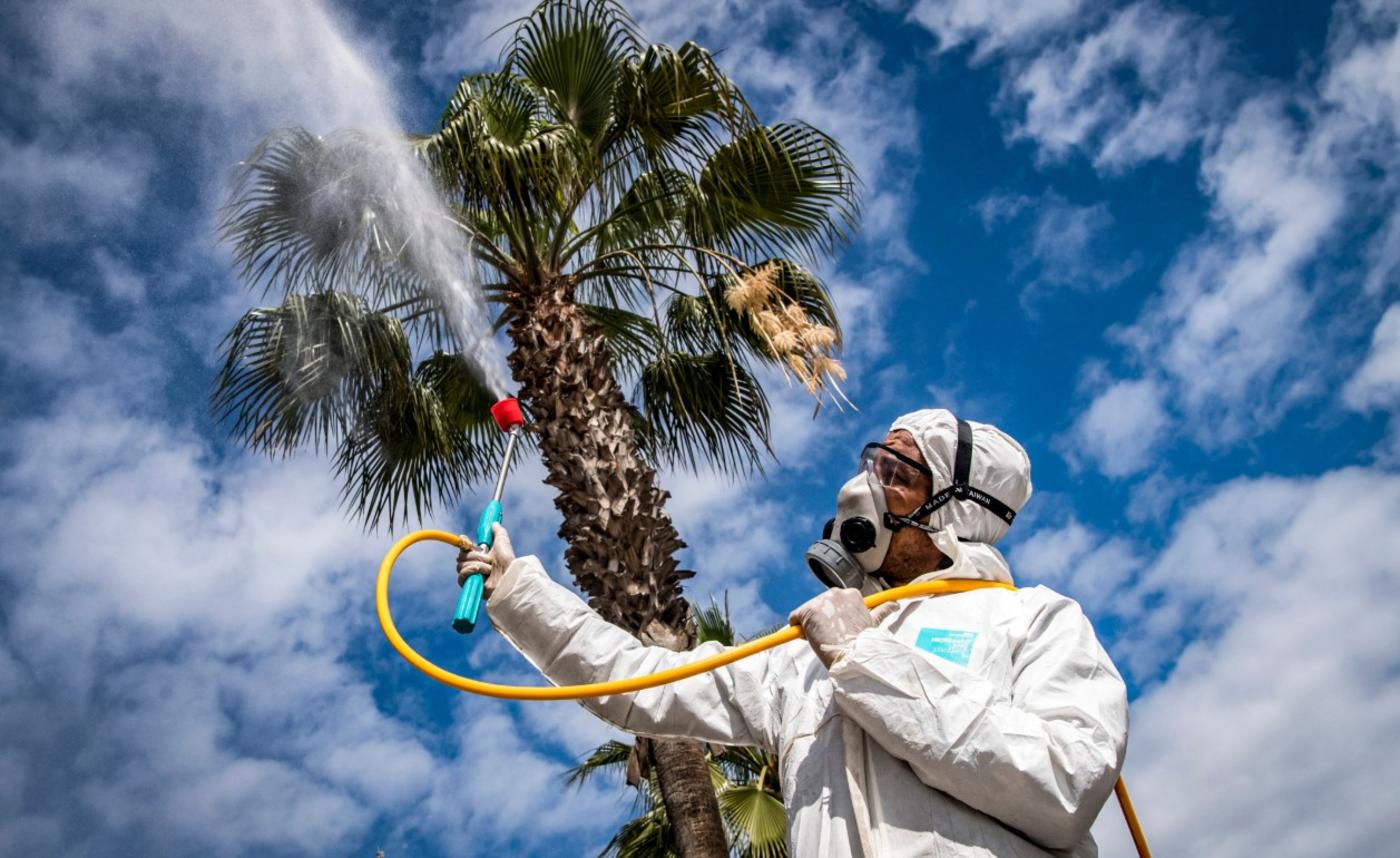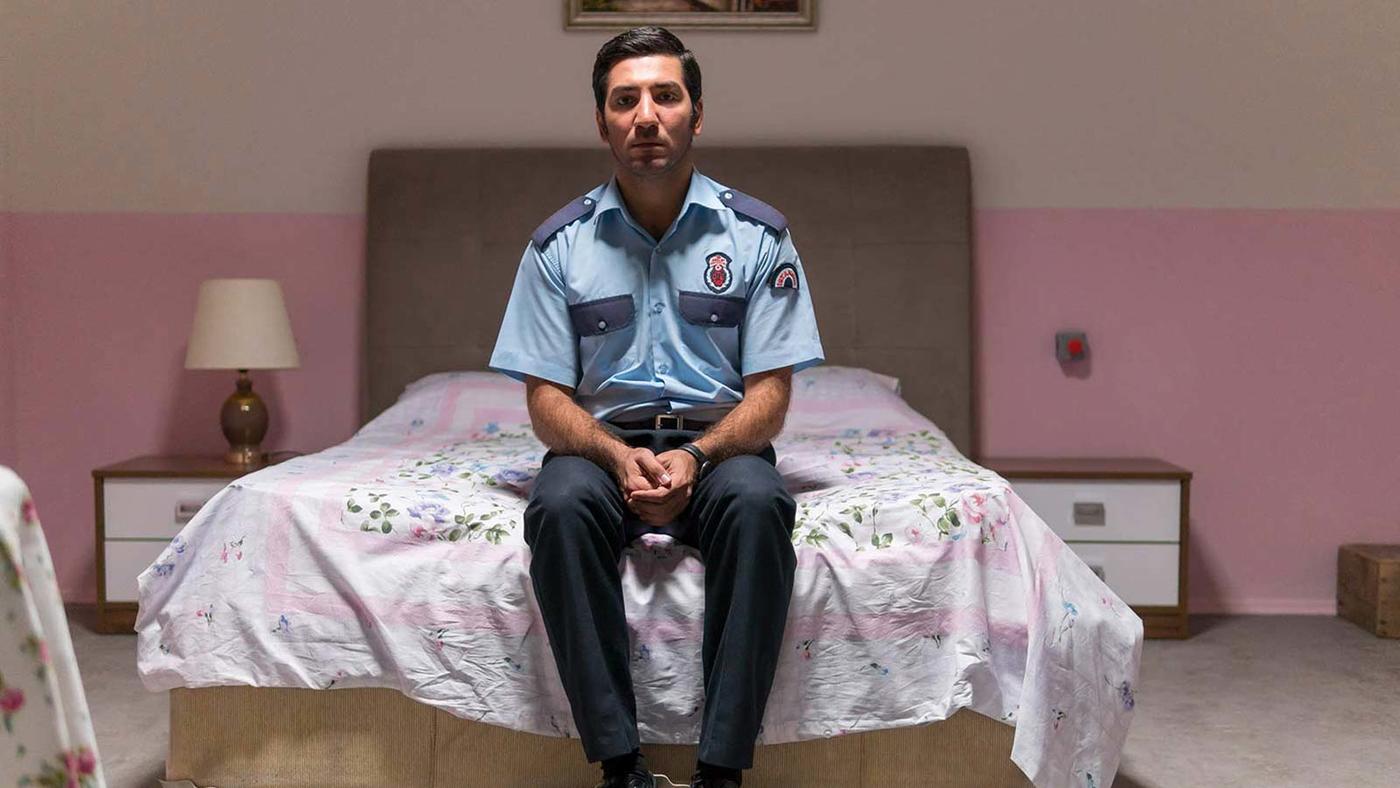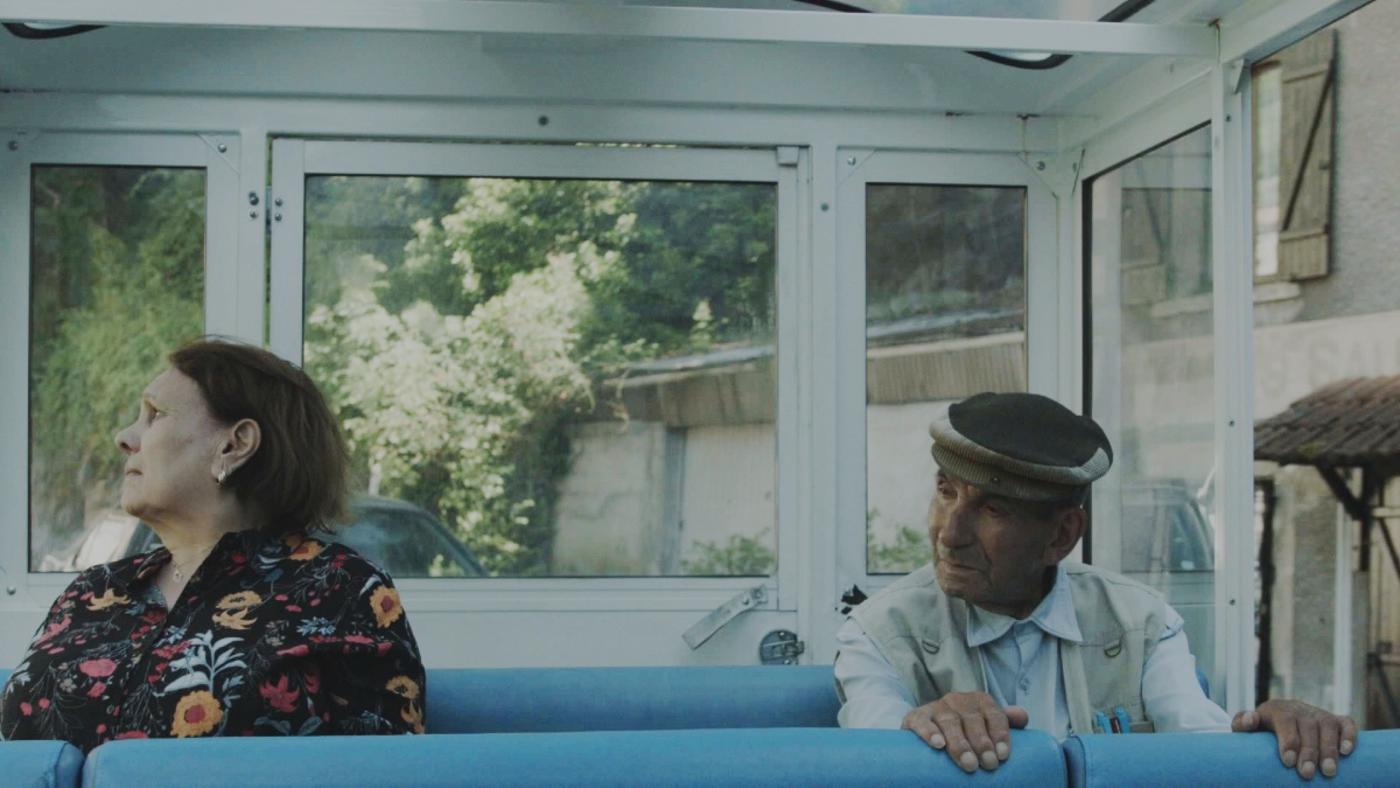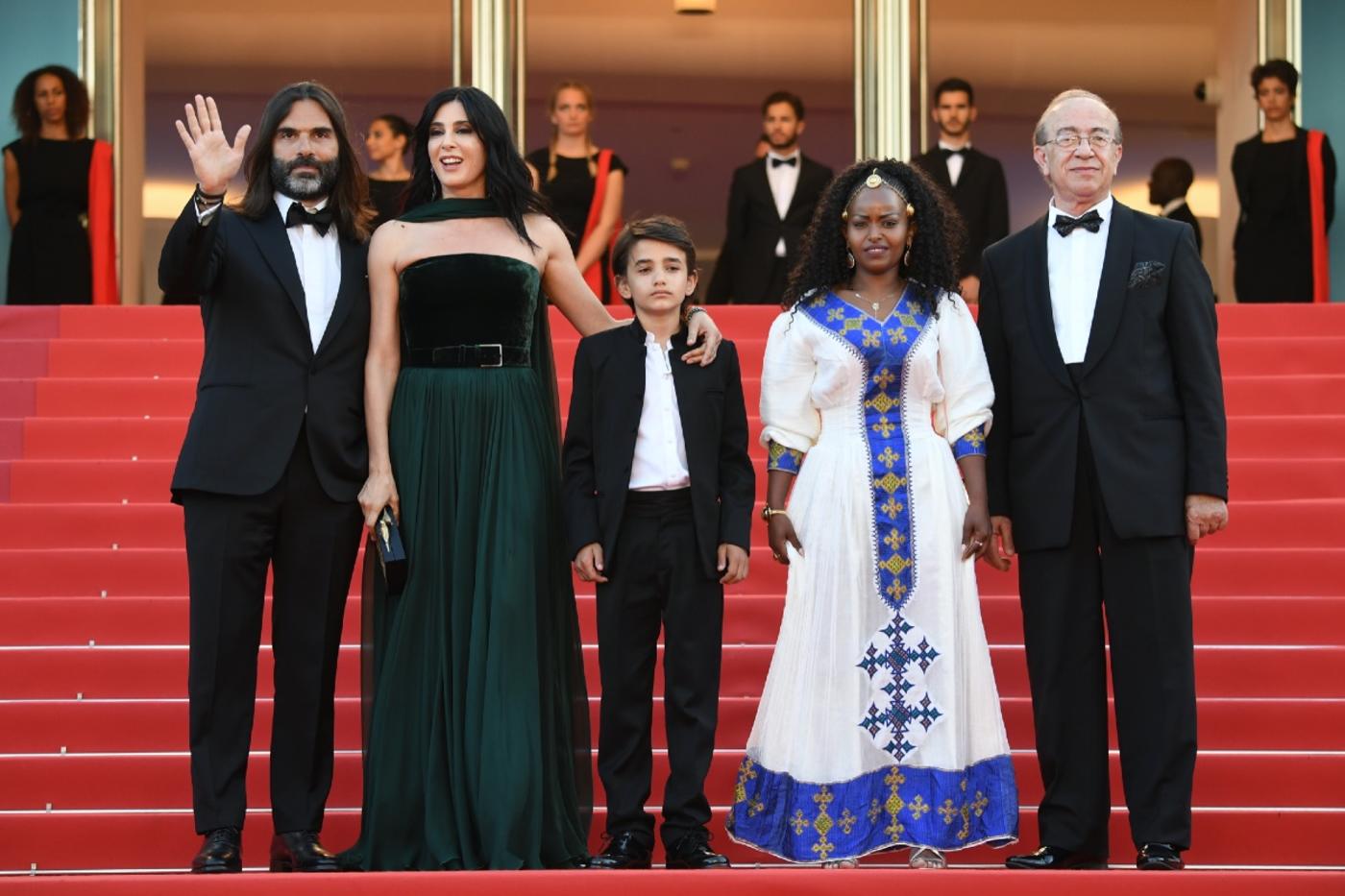Coronavirus and movies: How it's hurting the Middle East film business
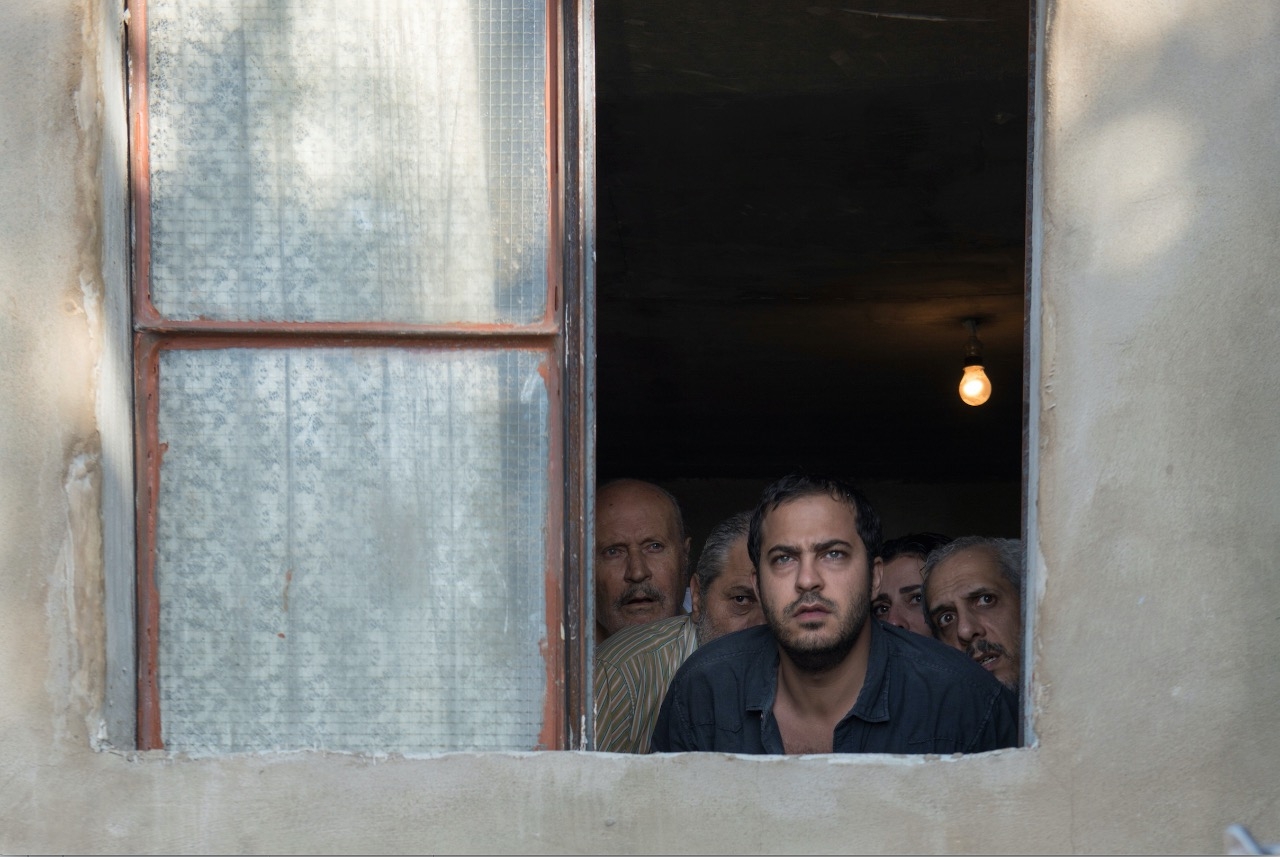
Middle Eastern cinema is no stranger to disaster, from European colonial forces derailing emerging national film culture during the 20th century, to the revolutions since 2011 that have halted production and shut down screens.
Yet nothing during the past 100 years has created more damage to the industry in the Middle East and North Africa than the current coronavirus pandemic.
The landscape has been transformed, as streaming services have risen to become the dominant source for film consumption
The damage to the industry pales in comparison to the human cost of the outbreak, which has killed tens of thousands worldwide.
Yet the long-term damage caused to the film business is likely to be transformative, according to many interviewed for this article.
The injury caused to the industry across the region almost overnight has followed the same trajectory as in the rest of the world. Cinemas shut. Productions suspended. Festivals cancelled.
The landscape has been transformed, as streaming services have risen to become the dominant source for film consumption amid what, for millions, now feels like eternal domestic confinement.
As Myriam Sassine, a Lebanese producer puts it: “When this thing is over, the whole film world may need to be reinvented. Time will be needed to restart everything.”
Covid crises
Before the coronavirus outbreak, the film business in the Middle East and North Africa was built on fragile foundations, with little to no state support. A widespread shutdown was was the last thing it needed.
Lamia Chraibi, leading Moroccan producer of marquee directors and festival regulars Hicham Lasri (The End) and Narjiss Nejjar (L'Amante Du Rif) through La Prod, told Middle East Eye: “No matter how positive I try to be, the fact of the matter is, I still don’t know how we’ll manage to pay all the salaries by the end of the month."
Like everyone else, Chraibi does not know how long the pandemic will last for, meaning that she has no idea "how we'll be able to bankroll our productions. I see this period as a chance to develop our ideas and scripts, but reality bites, and in two to three months when – or if - this is over, I might already be broke.”
The frantic speed at which Chraibi used to operate, from deadlines for grant applications to executive production and shooting schedules, has now slowed dramatically.
The region's film industry is dependent on outside co-producers, film funds and decision-makers, but these have grown increasingly unresponsive, as the European cinema business, from where most independent productions draw their finance, grapples with its own precarious future.
“Suddenly, everything stopped,” Chraibi says. “The situation overall in Moroccan cinema is strange, but there has also been a general spirit of solidarity that makes you realise you’re not alone in this."
In Lebanon, the pandemic arrived on the heels of mass protests and a deep economic recession that has driven half the population into poverty.
Nearly all of the independent film boutiques have scaled down their operations, with most producers and technical personnel forced to work on half pay.
The twin crises of disease and economic collapse have spared no one, including Abbout Productions, Lebanon’s foremost production house for independent films. One of its most recent productions, 1982, stars Nadine Labaki and premiered at the Toronto International Film Festival in September.
Sassine, one of Abbout’s producers, told Middle East Eye: “Even before corona, we stopped accepting new projects because we could no longer afford to be bankrolling everything. And yet we still managed to keep afloat and survive, partially through the aid of foreign money. By February, we felt we were back on track. And then the whole world fell apart.”
Despite Lebanon’s pre-pandemic problems, 2020 was supposed to be a banner year for Abbout, with two award-winning films set for theatrical release (1982 and All This Victory), an ambitious TV collaboration with two-time Oscar-nominated director Hany Abu Assad, and several films in post-production. One of these, the Cannes-bound Memory Box, is the company's most expensive to date. Currently postponed until late June, the festival seems unlikely to take place this year.
'We were preparing ourselves for another crisis, but we didn’t expect the whole world to stop with us'
- Myriam Sassine, producer
During the past few weeks, all of Abbout’s endeavours, including shoots planned for later this year, have been put on hold. Casting and location scouting have been indefinitely adjourned. Private investments have been frozen.
“The problem is that you’re fighting an invisible enemy", Sassine says. "The problem is not endurance: we were determined to stand against and resist the financial crisis. But what’s happening now is out of control. We can’t fight this."
She also doubts that Abbout can produce films on the budgets it had before, which she says were already minuscule. “I’m not sure we can work with the teams we want to work with under such reduced salaries... We were preparing ourselves for another crisis, but we didn’t expect the whole world to stop with us.”
And like Chraibi, Sassine’s productions are largely reliant on foreign funds, whose fate she says are now in doubt. “Europe may deem these funds to be a luxury. Maybe they’ll need to keep this money for themselves instead of giving it away to foreign filmmakers. All scenarios are now on the table."
One path taken by some independent filmmakers is to make their films available online for free - and here there have been some small glimmers of hope.
Sassine says that the public interest has made her realise that such features have a larger reach than she previously assumed. The producer cited as an example Myriam El Hajj’s little-seen 2015 documentary, A Time To Rest, about Lebanon’s Christian militia, which attracted more than 3,000 views in three days – an audience equivalent to 10 festival screenings.
“The movies we released online were the less popular, less accessible films of ours. The feedback we’ve received has been very, very touching. It gave us encouragement to keep doing these kinds of films.”
Government assistance
Turkey, like other countries, shut its cinemas in March. It also shares a border with Iran, which at time of writing has one of the highest death tolls from Covid-19.
Serkan Cakarer, the producer behind last year’s festival hit, Passed By Censor, describes the industry’s current state as “a big mess.”
Some of the problems, explains the founder of +90 Film Productions, relate to Turkey’s labyrinthine bureaucracy, which drives filmmakers with delayed theatrical releases to the brink of bankruptcy.
Producers need to provide banks with documentation that prove their films have not been released or delayed as a ruse to stall their required debt instalments. But the Ministry of Finance is reluctant to issue these at the moment, because the cinemas are shut. No certificate ultimately means no money from the bank.
Distributors have also not been spared. Bir Film, the Turkish distributor of Oscar-winning film Parasite, found itself in hot water when it put the film on iTunes after cinemas closed down. Cinema owners complained to the Ministry of Culture, which then threatened to prevent Bir releasing the film into theatres when the lockdown ends - unless it was pulled from iTunes.
More cataclysmic for film producers have been the related reduction in state grants. Turkey operates a similar ticket levy scheme to European countries such as France, whereby a cut of all cinema tickets is paid into a film production fund.
‘I would’ve been more accepting of the online shift if it’s done in a later, calmer phase - but not now’
- Serkan Cakarer, producer
This calamity is not solely restricted to cinema. Five or six TV productions, according to Cakarer, will need to resume shooting next week amid the current hazardous conditions, otherwise their producers face bankruptcy.
They are just a few of a wider 40 productions for whom filming has now been suspended and whose companies are close to sinking into debt.
The knock-on impact continues across the industry: if there is no fresh content for TV, then stations will be unable to attract advertisers and similarly lose revenue.
Cakarer said it would have been easier if the government had ordered a total lockdown, legally prohibiting productions from continuing: not doing this means filmmakers cannot claim insurance or access stimulus packages, as has happened in countries including Germany and the US.
"But they didn’t," Cakarer says, "because those assholes in the government have been wasting a lot of money for years and are flat broke at the moment. They’re having people older than 65 not go out, so we have a partial lockdown. They can’t enforce a full lockdown because they don’t have the means to provide businesses with financial aid.”
Cakarer also thinks that the international co-production events and platforms so many producers are dependent on can only have limited success at present, even if they continue online in some capacity. “I honestly think it’s nonsensical and stupid because no one is really concentrated on their projects these days", he says.
"At the moment, everyone’s concerned with the safety of themselves and their families. I would’ve been more accepting of the online shift if it’s done in a later, calmer phase - but not now.”
Festivals and events are hit
Lina Soualem's debut documentary feature, Their Algeria, was scheduled to participate in Qumra (20 March 2020 - 25 March 2020), the Doha Film Institute’s industry platform that pairs filmmakers with projects in different stages with producers, distributors and programmers.
Then it was axed. “Qumra was supposed to be a great and unique opportunity to present my film to programmers and sales agents and to get support before the release of the film in festivals,” Soualem told Middle East Eye.
But the event has still gone online. “It was amazing to be able to benefit from these virtual encounters with professionals all around the world,” says Soualem. “It was very important and strengthening to benefit from Qumra’s programme, to stay connected and to feel supported.”
A bigger blow for Soualem was the cancellation of Switzerland’s Visions du Réel (17 April – 2 May), one of the world’s most prominent documentary festivals, where Their Algeria was set to premiere. The event subsequently moved its programme online.
The impact is emotional as well as artistic: Soualem has been working on her film for more than three years.
“I couldn’t wait to share my film with the audience for the first time,” she says. “Unfortunately, due to the Covid-19 situation, Visions can’t happen in the way it was supposed to happen and I won’t be able to experience the first time I’ll physically share the film with an audience.”
Their Algeria already has a distribution deal in France and has attracted the attention of various programmers around the world. Amid the pandemic, however, the film may not make it to cinemas – and Soualem will have to wait till autumn to present her work in person to an audience.
“It’s all very frustrating and saddening but we have to accept this global, unpredictable and strange situation we are experiencing,” she says. “I am trying to adapt to this new world order and these very uncertain times, remembering that everyone is affected and that it is time to show solidarity and resilience.”
Streaming giants fill the gap
There has been much discussion about how streaming services may come even more to the fore during the pandemic, as cinemas and festivals shut down. In the Middle East, the likes of Netflix, OSN and Amazon could emerge as the primary home for movies once the crisis has passed.
Jessica Khoury, head of sales and acquisitions at Egypt’s Film Clinic Distribution, says Arab TV stations have not stopped buying content. Netflix, according to her, has also been substantially expanding its operations in the region.
The growth of Netflix has injected a much-needed source of revenue into the cash-strapped region: the US streaming giant has recently started to buy rights for the first run of new films for sums equal to older industry players such as ART and OSN. But the business cannot rely exclusively on it.
“The distributor’s investments in any given film they acquire is nowhere as large as the producers,” Khoury told Middle East Eye. “A distributor can easily break even via sales to Netflix. That’s not the case with producers, who must recoup their investments from additional sources.”
According to Khoury, a medium-sized Arab production can recoup 70 percent of the investment the producer puts in through TV and streaming sales. A theatrical release, conversely, represents only a paltry percentage of a film’s income.
Other revenue lost to producers for the foreseeable future includes screening fees generated from festivals, which Khoury estimates to be around $20,000 for “a good, award-winning film”.
For Arab independent films then, festivals and theatrical releases act as a promotional tool ahead of TV sales. Whether that will still be the case after the pandemic remains to be seen.
For the Arab independent sector, TV is here to stay. “TV channels will commission and buy a lot of content because people will always need to watch content,” Khoury says. “And they will have more power and more money as viewing habits change.”
After the pandemic
But will the streaming giants such as Netflix, OSN and Amazon emerge as the primary home for movies once the crisis has passed?
“I think video on demand platforms and streamers will take over," Sassine says. "Maybe this will be our only means to survive. We will probably need to cater our films to them from then on. I don’t think they’ll be of lesser quality, or that we’ll lose our freedom by doing so. But maybe we’ll have to make them more accessible.”
But if the cinema ecosystem swiftly shifts to home viewing, what will this new reality mean for film festivals?
“My biggest fear, which I hope won’t happen, is that the industry may think that they might not need festivals,” Sassine says.
“Many of the cancelled festivals put their films online. I don’t know whether this was successful or not, but if it was, it would be worrying, because that’s a cheaper and more practical mode that could change how festivals operate forever.”
Cakarer concurs. “I always saw festivals as psychological facilities. Making independent films is such a pain, so when you go to festivals and meet people who are struggling just like you, this sense of collective suffering gives you some kind of relief.
“But in all seriousness, the scrapping of festivals will affect different branches of the indie sector. I know several sales agents who do 50 percent of their turnover in Cannes for example. Lots of bankruptcies would occur if the Cannes market is scrapped altogether.”
'If it lasts longer, however, like six months or so, I think people’s cultural and social habits would mutate'
- Serkan Cakarer, producer
For regional distributors, the losses, surprisingly, haven’t been very significant. The regional market for independent cinema remains small. The bulk of their sales are taken up by TV stations: Saudi Arabia’s Rotana, ART, MBC and OSN remain the biggest purchasers of Arab films in the region.
“Pundits are divided on how the future of the industry may unfold when this ends," Cakarer says. "One group believes that the audience, who will be fed up with all the social media consumption, will flock to the theatres in droves, which I think is too good to be true. People will only go back to cinemas though if the situation doesn’t last long.
“If it lasts longer, however, like six months or so, I think people’s cultural and social habits would mutate, and going back to the cinema would gradually decrease, because it already was on the decline before Corona.”
Middle East Eye propose une couverture et une analyse indépendantes et incomparables du Moyen-Orient, de l’Afrique du Nord et d’autres régions du monde. Pour en savoir plus sur la reprise de ce contenu et les frais qui s’appliquent, veuillez remplir ce formulaire [en anglais]. Pour en savoir plus sur MEE, cliquez ici [en anglais].


